Thursday Morning Medical Update: COVID and Free Skin Cancer Screenings
The University of Kansas Health System reports the numbers of COVID patients are holding steady today. 35 patients with the active virus are being treated, down from 36 yesterday. 17 of those patients are in the ICU, up from 16 yesterday. Seven patients are on ventilators, down from nine yesterday. 24 other patients are still hospitalized because of COVID but are out of the acute infection phase, up from 23 yesterday. That’s a total of 59 patients, the same as yesterday. HaysMed has seven patients, up from six from two yesterday.
On today’s Morning Medical Update, COVID continues to take a toll on cancer patients who have delayed annual screenings. Gary Doolittle, MD, an oncologist with The University of Kansas Health System, discussed the importance of those screenings, and told how to get a free skin cancer screening next month.
Before discussing today’s topic, doctors noted the big uptick in COVID cases in the Metro area, all from the more contagious Delta variant. They said there’s a really good reason the CDC now recommends both vaccinated and unvaccinated people wear masks indoors. The delta variant is different. It is as deadly as previous COVID variants and may result in higher deaths because it is much more contagious. Unvaccinated people are most at risk of the delta variant. They say the only sure way to stop it until we reach herd immunity with vaccinations is to wear a mask. They stress, despite what some think, we are nowhere near herd immunity, which is 80 percent of the people vaccinated. They also say the summer heat has no effect on COVID.
Dr. Doolittle says, speaking of the summer weather, we need to remember it’s not the temperature but the intensity and UV radiation exposure of the sun that affects our risk of skin cancer. The highest risk time is between noon and two p.m. Those with fair skin and blond or red hair are even more vulnerable. He stressed it’s vital to wear protective clothing, sunglasses and apply sunscreen of at least 30 SPF, and check to make sure it has not expired. He says it’s a sad fact that skin cancer diagnoses dropped 43 percent in the last year, but not because there’s less of it. It means people did not get screened like they normally should because of COVID fears, and that’s leading to many being diagnosed at a much later stage when the chance of survival is less. He recommends everyone have a head to toe skin cancer screening at least once a year, and let your doctor know if you see a mole that’s changing or a skin spot that’s new, changing, bleeding or itchy. He also announced the Masonic Cancer Alliance is holding its annual Free Skin Cancer Screening on Saturday, August 21 from 8:30 to 11:30 a.m. at the health system’s Medical Pavilion. To register, use this link: bit.ly/skinsafesaturday2021.
Dana Hawkinson, MD, medical director of Infection Prevention and Control at The University of Kansas Health System, says we are now seeing two pandemics. One is the pandemic of the vaccinated, but even greater is the pandemic of the unvaccinated. The vaccinated, even if they get COVID, have many fewer symptoms and don’t need to be hospitalized unless they have other medical problems. He also sees a third pandemic, one of misinformation, with people claiming the vaccine causes infertility and masks harm children, both of which are false. He says the risk of a vaccinated person needing help in the COVID long haul clinic is very low. He advises everyone there is still time to do the smart thing and get vaccinated, especially your kids 12 and older.
Steve Stites, MD, chief medical officer at The University of Kansas Health System, noted the new CDC guidelines on mask wearing don’t say anything about capacity restrictions for indoor gatherings. He feels if the current guidelines don’t stop the new surge of cases, those restrictions may need to be added. He also said, medically speaking, it’s the right thing for kids to wear masks to school this year, especially those not old enough for the vaccination. But he says each school district must make the choice that’s best for their community. He adds, “With vaccination and masking, we can whip this. We know how to break the curve, not just bend the curve, folks. Let’s break the curve!”
Friday, July 30 at 8:00 a.m. is the next Morning Medical Update. We’ll get to unanswered questions from the week. Also Dr. Gary Morsch, founder of COVID Care Force, explains the need for volunteers as COVID surges.
-
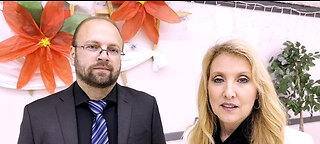 8:26
8:26
Real Truth Real News
1 year ago💉🩺👨🔬 UPDATE: Dr. William Makis Reports That There Are Now 93 Dead Doctors in Canada Since the Covid Vaccine Rollout
1.48K14 -
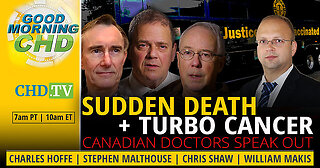 1:04:49
1:04:49
Real Truth Real News
1 year ago🔥💉 Canadians Doctors Discuss the Covid Vaccine Disaster, Sudden Deaths, Turbo Cancer and the Deaths of 80+ Canadian Doctors Speak Out
11.1K35 -
 2:15:01
2:15:01
Mike Martins Channel
1 year agoMike in the Night! 492, UK Oncologist warns Cancers are rapidly developing, post-Covid Vaccination, CITIES IN COLLAPSE, Retailers, businesses are fleeing, rampant violence, theft, World Wide Riots, Exodus of Big Cities!
2.62K14 -
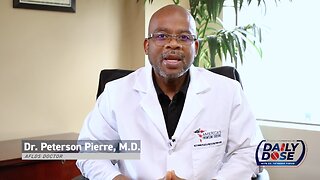 1:40
1:40
USAFrontlineDoctors
1 year agoNew Codes for COVID Vaccine Status
1.42K4 -
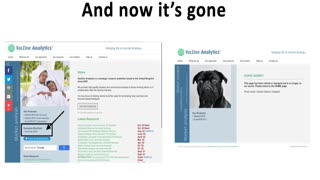 19:07
19:07
UKColumnExtracts
1 year agoHealth (closing segment) - UK Column News - 9th November 2022
31 -
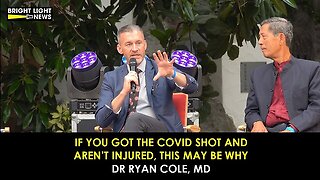 2:06
2:06
Real Truth Real News
1 year ago⚠️💥💉 HUGE! Dr. Ryan Cole, MD ~ If You Got the Covid Vaccine and Aren't Injured This May Be the Reason! (Check Your Vaccine Batch Below)
27.5K33 -
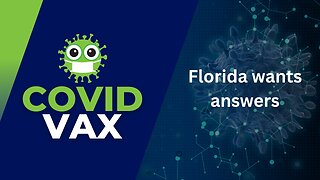 16:23
16:23
Declarations of Truth
5 months agoCOVID vaccines – Florida official wants answers
4342 -
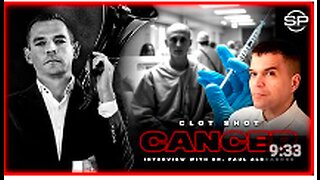 9:33
9:33
Biological Medicine
10 months agoCancer Causing SV40 Found In Covid Bioweapon: Turbo Cancers Skyrocket In Young People
1.66K3 -
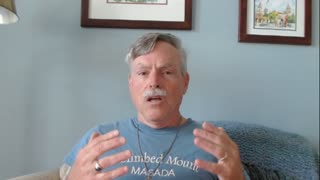 8:16
8:16
SweetHomeStAugustine
1 year agoFDA Says What on COVID-19 Shots?
139 -
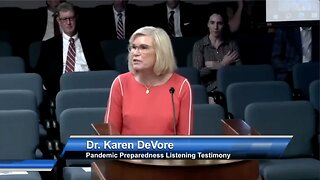 13:30
13:30
USAFrontlineDoctors
4 months agoDr. DeVore Testifies in US Senate on Side Effects, Skin Cancer & Miscarriages from Covid-19 Jabs
1.11K3